 THE ESSENTIAL GUIDE TO SPORTS NUTRITION AND BODYBUILDING
THE ESSENTIAL GUIDE TO SPORTS NUTRITION AND BODYBUILDING 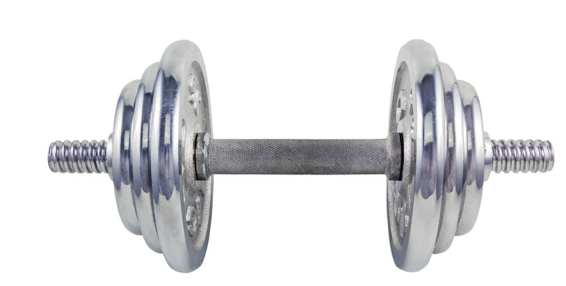
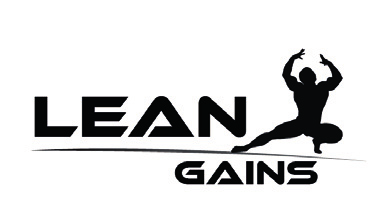 THE ESSENTIAL GUIDE TOSPORTS NUTRITION ANDBODYBUILDINGTHE ULTIMATE GUIDE TOBURNING FAT, BUILDING MUSCLEAND HEALTHY LIVINGDR. JONATHAN S. LEE BDS BSc
THE ESSENTIAL GUIDE TOSPORTS NUTRITION ANDBODYBUILDINGTHE ULTIMATE GUIDE TOBURNING FAT, BUILDING MUSCLEAND HEALTHY LIVINGDR. JONATHAN S. LEE BDS BSc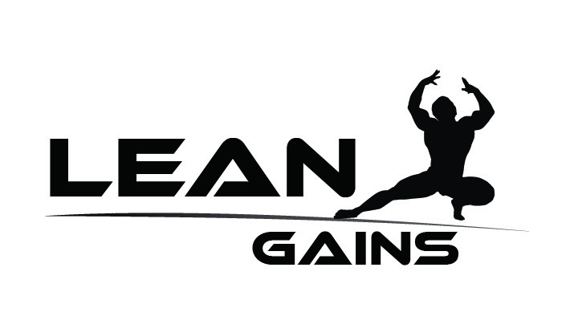

 2018 Dr. Jonathan S. Lee BDS BSc. All rights reserved.No part of this book may be reproduced, stored in a retrieval system, or transmitted by anymeans without the prior written permission of the author.The book is not intended as a substitute for the medical recommendations of physicians orother healthcare providers.
2018 Dr. Jonathan S. Lee BDS BSc. All rights reserved.No part of this book may be reproduced, stored in a retrieval system, or transmitted by anymeans without the prior written permission of the author.The book is not intended as a substitute for the medical recommendations of physicians orother healthcare providers.
Rather it is intended to offer information for educationalpurposes, and to help the reader cooperate with health care professionals in a joint quest foroptimum health. The advice and strategies contained herein may not be suitable for yoursituation. You should not undertake any diet or exercise regimen recommended in this bookbefore consulting your personal physician. The author is not responsible or liable for any lossor damage allegedly arising as a consequence of your use or application of any information orsuggestions contained within this book. The author is not liable for any loss of pro t or anyother commercial damages, including but not limited to special, incidental or consequentdamages.Published 2018.ISBN: 978-1-9164105-0-3 (hc)ISBN: 978-1-9164105-7-2 (sc)ISBN: 978-1-9164105-1-0 (eb)Any people depicted in stock imagery provided by Shutterstock, Pixabay and Dreamstime aremodels, and such images are being used for illustrative purposes only.Because of the dynamic nature of the Internet, any web addresses or links contained in thisbook may have changed since publication and may no longer be valid.Visit the authors website:www.leangains.co.uk In loving memory of my father who sadly passed away in 2009. II My fascination with brawn began almost thirty years ago when I came across an old VHS copy of the now classic documentary Pumping Iron.
As I watched Arnold Schwarzenegger compete with Lou Ferrigno for the title of Mr. Olympia, my eyes were virtually glued to the screen for ninety minutes. Once it was over, the rst thing I wanted to do was to grab my gym clothes, drink a protein shake (which, thanks to inspiration from the movie Rocky, consisted of six raw eggs in a tall glass) and run as fast as I could to the local gym (which was incidentally ten miles away!). At the age of twelve, however, this would prove to be a dif cult feat. Nevertheless, I knew from that moment onwards that weight training was going to be an integral part of my life in one way or another. When I was sixteen years old, my close friend introduced me to a new gymnasium that opened up in our neighbourhood.
I was nally old enough to begin my weight lifting journey. Within six months, I was hooked, and since then, Ive never looked back. I still lift weights on a regular basis (three to ve days a week) and will continue to do so for as long as Im able. As you can no doubt imagine, my twenty- ve-year love affair with weight training, food, nutrition, and exercise has consisted of many peaks and troughs. During this time, however, Ive trained alongside many professional athletes, bodybuilders, doctors, power-lifters and even yoga teachers. In doing so, I was in a position to pick their brains and learn about what training regime worked best for them.
As time moved on, my passion for weight training and sports nutrition grew stronger and stronger, and the thought of going to university and studying these topics further became more appealing to me. My dream came true in 1995 when I was accepted into Kings College London. In 1999, I graduated with a Bachelor of Science Degree in Nutrition and Medical Sciences. I later studied Dentistry at Guys Hospital, London and quali ed a few years afterwards as a dental surgeon. In total my time at university spanned eight years allowing me enough time to further my knowledge base with regards to sports nutrition, dentistry, and medicine. At the beginning of 2009, my father became very ill.
A few weeks later, he was diagnosed with stomach cancer. This news came as a massive and terrifying shock to my family and me. I personally found this dark time in my life extremely dif cult to come to terms with. I could not understand how such a thing could happen to someone who had led an active life, was physically very strong, whod never smoked a cigarette in his life, and rarely drank alcohol. Up until that point, my father was the spitting image of health. Ironically, my siblings and I would refer to him as Superman on occasion because wed never known him to be sick.
This is why it came as an additional shock to the family when he passed away later on during that year. His death forced me to look into risk factors which may help explain why a healthy individual, like my father, could fall victim to such a tragic and debilitating illness. Then one day, whilst reading III an article in a magazine, I came across an advertisement with the slogan You are what you eat! These ve words served as a eureka moment for me because they allowed me to concentrate less on common environmental factors that often play a role in Western diseases (such as emotional stress, pollution, smoking and so on) and shift the focus more towards dietary factors. Even though he took pride in his physical appearance, my father did not have the best diet in the world. He would rarely eat enough fruits and vegetables, for instance, and frequently consumed foods that were either fried or heavily processed. In addition, he would exercise less frequently and start eating more take away meals as he got older.
In r etr ospect, it is my str ong belief that the combination of a poor overall diet, in conjunction with insuf cient exercise, were the main reasons behind his illness and consequent demise. I also believe that if he were to apply an effective preventative nutritional approach and exercise programme as part of his daily routine, then he would still be alive today. It is for this r eason why I have intentionally decided to not only cover the scienti c fundamentals behind muscle gr owth and fat loss but to also focus on vital steps that should be taken, on a r egular basis, in or der to live a long, vibrant and healthy life. I I would like to take this opportunity to thank each and every one of my mentors. They have provided me with a deep understanding of the science behind all aspects of sports-related nutrition and physiology over the last 25+ years. Id like to give special thanks to Dr Anthony Leeds, at King's College London, and Professor Thomas Sanders.
Their knowledge and wisdom they so clearly displayed during our one-to-one tuition sessions over the years have contributed massively towards the backbone of many topics covered throughout this book. I would also like to acknowledge the extensive research undertaken by the plethora of doctors, scientists, nutritionists and researchers whose work has been referenced throughout this book. Without their notable contribution towards the world of sports nutrition and bodybuilding, I would not have been able to undertake this project. I wish to extend my thanks to the many personal trainers, bodybuilders, and athletes Ive had the pleasure to work with. My sincere appreciation extends further to Dermot Gallagher, Chris Halgreen and Dave Bulldog Beattie in particular. Over the years, these three gentlemen have demonstrated a superb knowledge base which has served to inspire me both inside the gym as well as throughout my daily life.
Next page
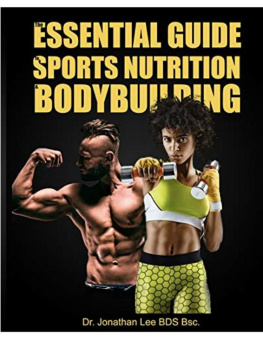
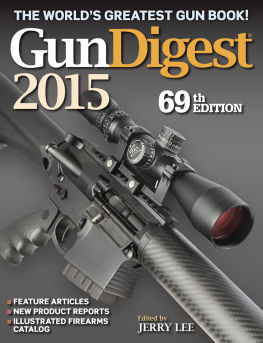
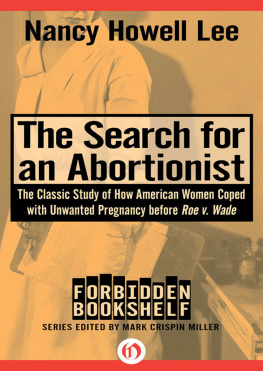
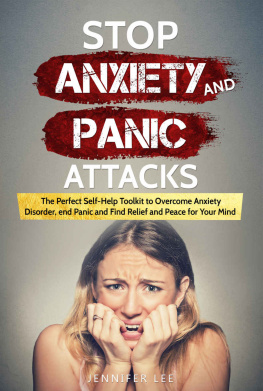
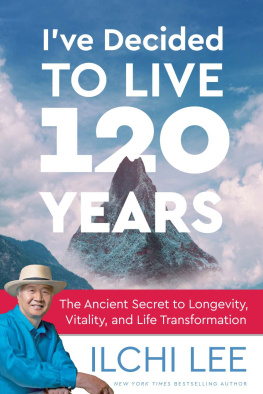
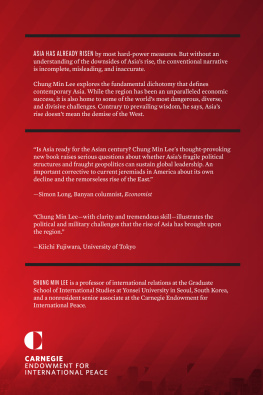
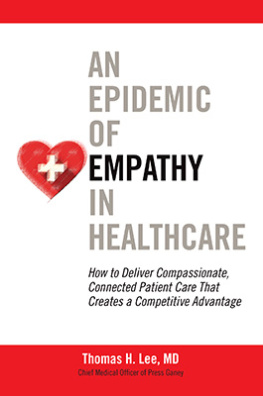

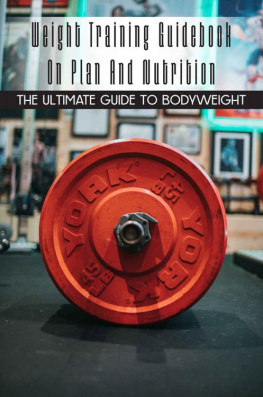
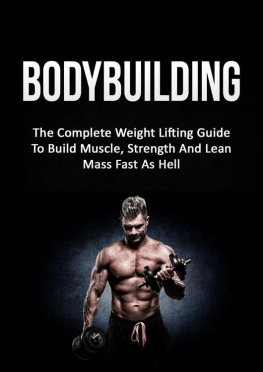
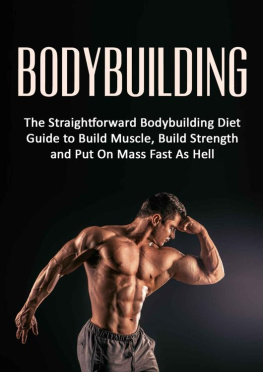
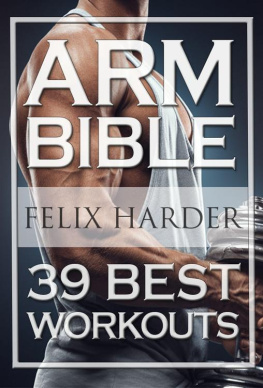
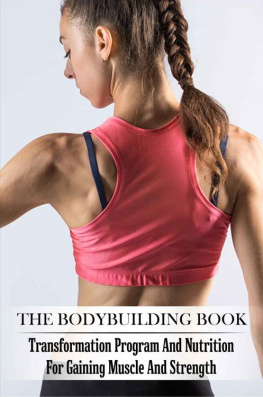
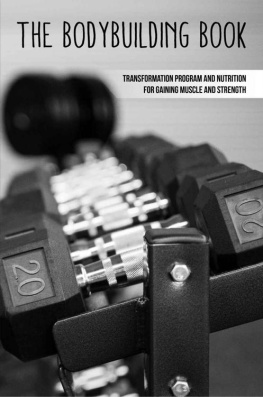
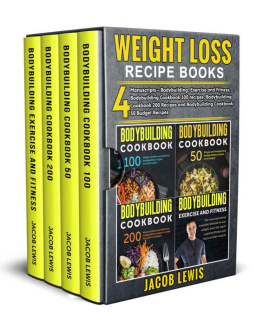
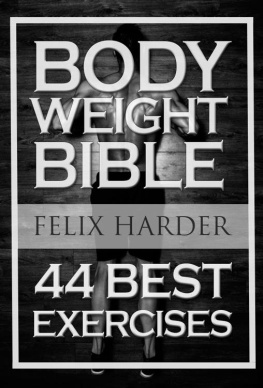
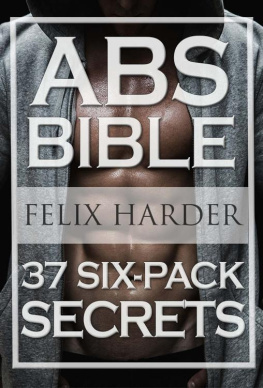
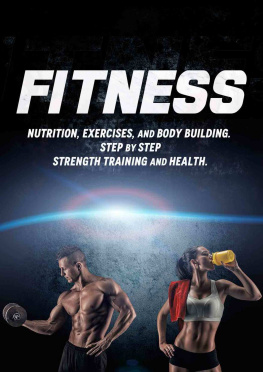
 THE ESSENTIAL GUIDE TO SPORTS NUTRITION AND BODYBUILDING
THE ESSENTIAL GUIDE TO SPORTS NUTRITION AND BODYBUILDING 
 THE ESSENTIAL GUIDE TOSPORTS NUTRITION ANDBODYBUILDINGTHE ULTIMATE GUIDE TOBURNING FAT, BUILDING MUSCLEAND HEALTHY LIVINGDR. JONATHAN S. LEE BDS BSc
THE ESSENTIAL GUIDE TOSPORTS NUTRITION ANDBODYBUILDINGTHE ULTIMATE GUIDE TOBURNING FAT, BUILDING MUSCLEAND HEALTHY LIVINGDR. JONATHAN S. LEE BDS BSc

 2018 Dr. Jonathan S. Lee BDS BSc. All rights reserved.No part of this book may be reproduced, stored in a retrieval system, or transmitted by anymeans without the prior written permission of the author.The book is not intended as a substitute for the medical recommendations of physicians orother healthcare providers.
2018 Dr. Jonathan S. Lee BDS BSc. All rights reserved.No part of this book may be reproduced, stored in a retrieval system, or transmitted by anymeans without the prior written permission of the author.The book is not intended as a substitute for the medical recommendations of physicians orother healthcare providers.